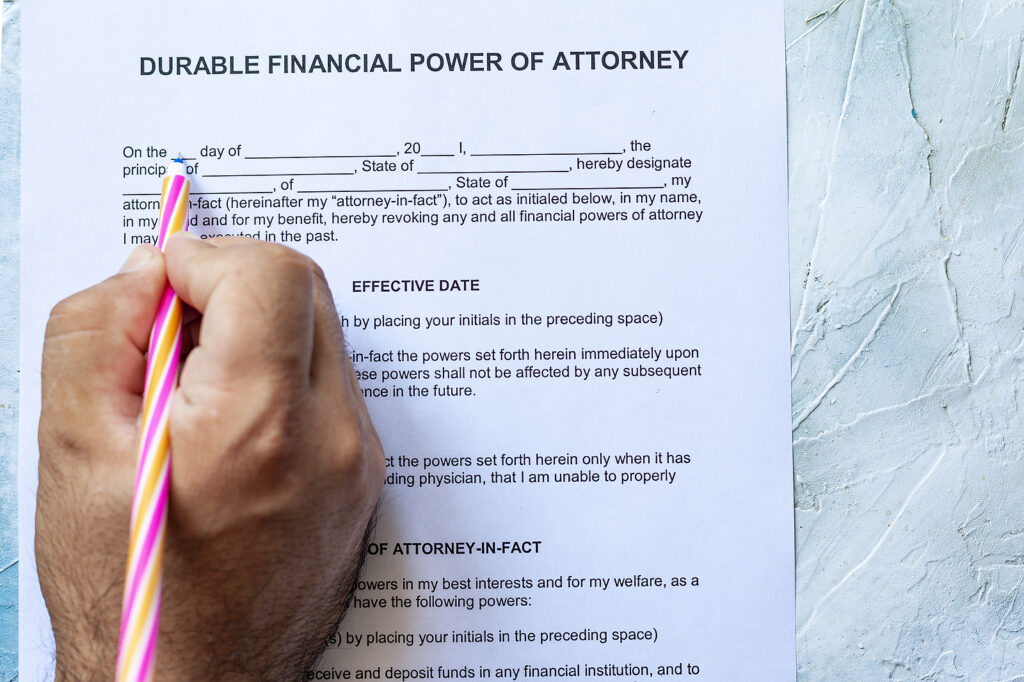One of the more important things that a person can do for their family is to take the time and care necessary to plan their estate. There’s a lot that has to be done and decided on, from who will inherit the family home to starting a trust to protect assets meant for your children, spouse, or friends.
But most of the stuff that has to be done when it comes to dealing with an estate happens after you have passed. All that stuff you planned for must then be executed according to your wishes. Since you’re gone, the only way to do so is to appoint an executor you can trust, but how can you be sure you’ve appointed the right person?
That’s what we’re digging into today. We’ll start by looking at what duties are expected of an executor. Understanding what an executor does makes it easier to figure out what qualities make for a good executor. Following this, we’ll close our discussion with some tips for picking the right executor for you.
What Does an Executor Do?
“Executor” is the term used to describe the individual who is to serve as the legal representative of somebody’s estate after they die. The executor is named in the deceased individual’s will, which is fitting since a large proponent of what they do is deal with the will itself.
How complex the role of executor is depends on the estate in question. A small estate without much property and few family members will be a much easier and quicker experience than a large estate with many family members. The size of the estate itself affects the complexity of the role, but more family members mean more chances for somebody to take issue with the will and slow the process down through a legal battle.
The executor of an estate has a number of different tasks they are responsible for, including (but not limited to):
- Finding the will
- Interpreting the will
- Consulting with attorneys
- Arranging the probating of the will
- Assisting with funeral arrangements
- Locating any beneficiaries named in the will
- Preparing an inventory of the deceased’s assets
- Preparing an inventory of the deceased’s liabilities
- Contacting and dealing with financial institutions such as the deceased’s bank, insurance company, or more
- Distributing the assets of the estate according to the will
- Paying off the debts of the estate
- Placing advertisements to locate creditors of the estate
- Filing the tax information
A lot of what an executor has to do requires some financial literacy. Help can always be obtained from an experienced attorney, but assistance only goes so far. It’s best to pick your executor based on the qualities that make for a good executor, rather than, say, your best friend simply because you were close. Let’s look at those qualities next.
What Qualities Make for a Good Executor?
Picking a friend may not be the worst idea in the world. After all, you should be able to trust to do their best to ensure your wishes are followed. Trust is one of the best qualities when it comes to picking an executor. Unfortunately, trust alone is not enough. To choose the best possible executor, you should weigh the pros and cons of an individual’s qualities as a whole before making the decision.
Some qualities that make for a good executor are:
- Their Objectivity: Being an executor often means ending up on the wrong side of several family members. Bickering about who should inherit what can become quite nasty. It’s important that an executor stays objective about their role so they can best follow the wishes of the deceased individual, without taking sides and choosing one beneficiary over another just because they like them more.
- Their Location: Choosing somebody from out of state can make the role of executor harder. They will likely have to take a few trips into the state to go over everything, plus they may be unfamiliar with the laws of the state compared to their own.
- Their Schedule: A good executor has the necessary time to do the task. Those who are constantly working and on the go are likely too busy to dedicate their time to be an executor, and that can lead them to do a poor job.
- Their Health: An executor should be in good enough health that they are expected to outlive you. After all, their job starts when you pass away, so it’s best to pick somebody in good health.
- Their Financial Literacy: There is a lot of balancing numbers, dealing with taxes, working with creditors, and the like. Somebody with a decent level of financial literacy is recommended since the task can be overwhelming otherwise.
How Do You Choose the Right Executor?
Some tips for ensuring you choose the right executor are:
- Name a backup in case the first is unable to take the role or passes away
- Consider naming an estate attorney or other professional if none of your personal relations are appropriate for the job
- Don’t pick somebody older than yourself
- Choose somebody that lives close to you
- If you don’t trust them, don’t choose them
- Consult an attorney about your choice to see if they notice any red flags
- Consider naming a co-executor
- Remember that you can change your executor as long as you’re alive, so review your choice often (especially if you have a falling out)
- Try to avoid picking an executor that your family or beneficiaries dislike
- Try to avoid anybody with a criminal record
- Consider how patient the individual is and whether or not they have the traits of a good executor
What If I’m Unsure Who to Pick as My Executor?
If you aren’t sure who to pick, then reach out to an experienced estate attorney. They will be able to help you make the best decision out of the choices you have available. They may also be able to help serve as an executor should you have no other options. The best way to get information is to set up an appointment to discuss all your concerns and options, then make your decision based on the feedback you receive.







